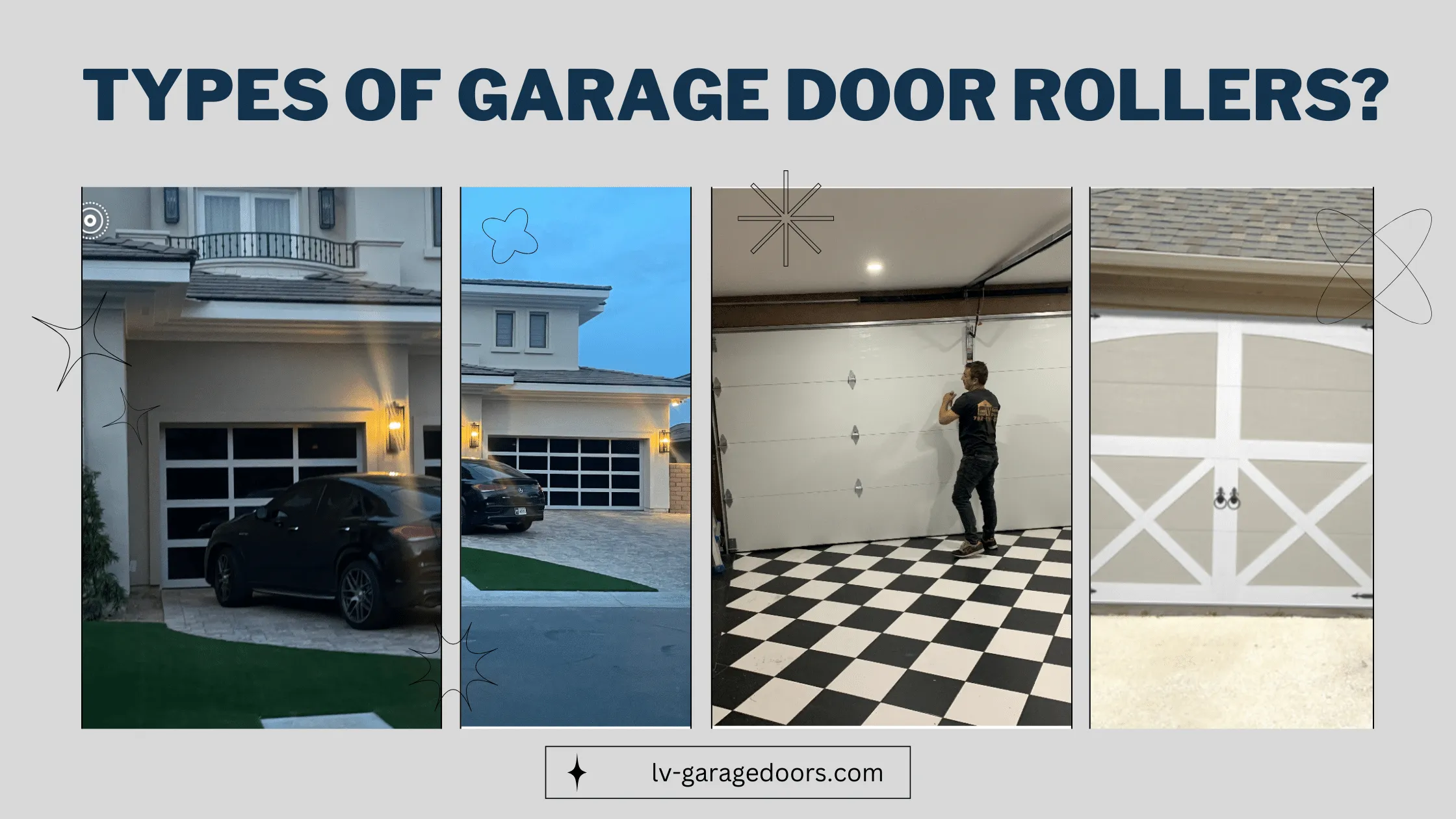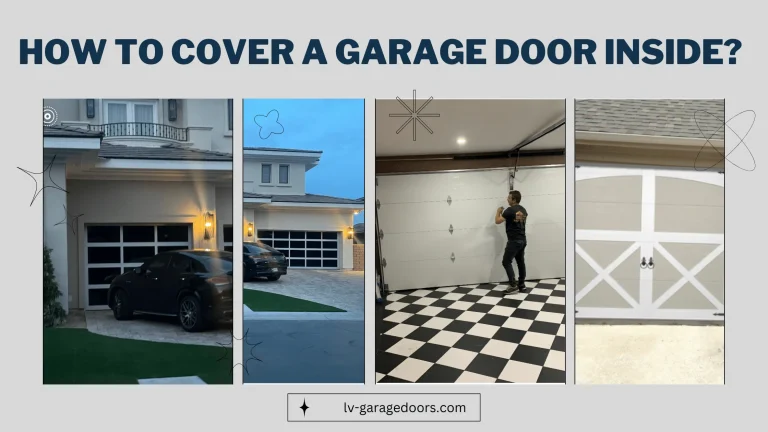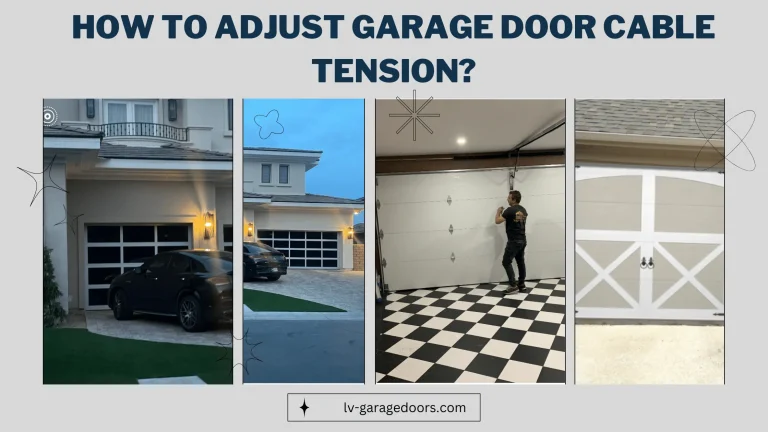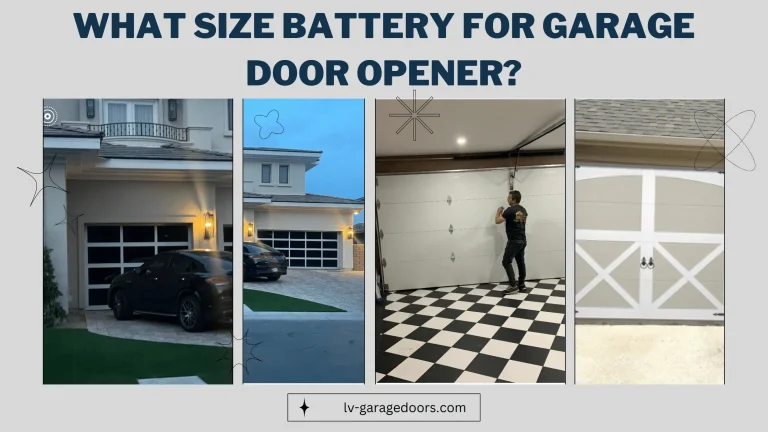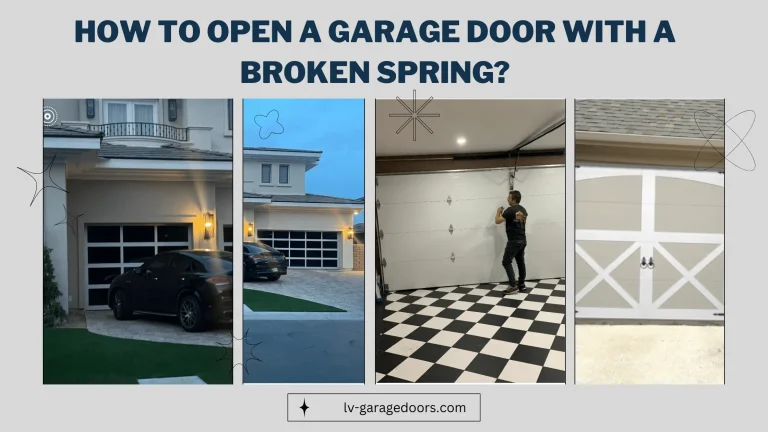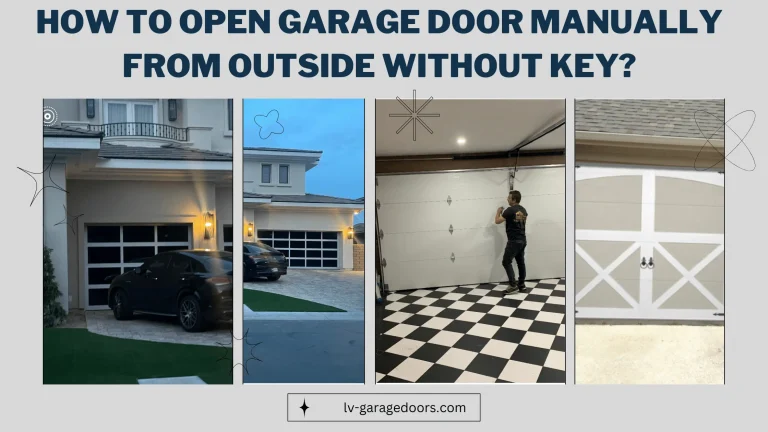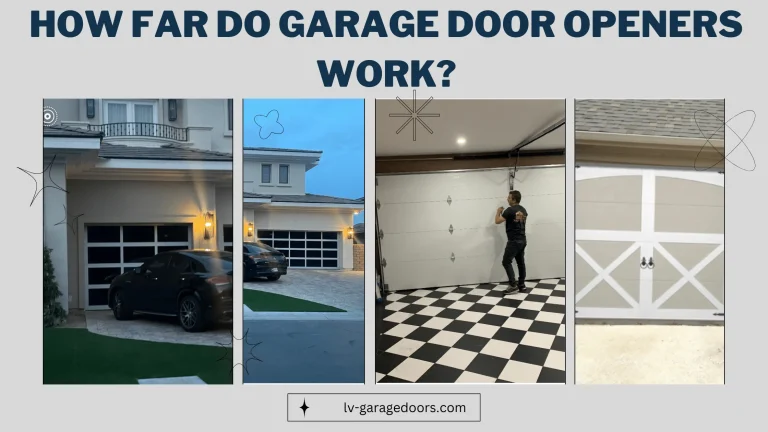Types Of Garage Door Rollers – Step by Step
Garage door rollers are an essential component for any garage door, and the type of roller you choose can have a big impact on the overall performance of your system. There are a variety of types available, each offering different benefits and features.
This article will provide an overview of the different types of garage door rollers and discuss how they can benefit your home or business. We will also explore the features to look for when shopping for garage door rollers and how to choose the best type for your needs. Read on to learn more!
Exploring The Various Types of Garage Door Rollers:
There are several different types of garage door rollers available, each with its unique characteristics and benefits. These include:
Nylon Rollers:
Nylon is a lightweight material that is both strong and durable, making it an ideal choice for garage door rollers. It is also resistant to corrosion and wear, meaning it can withstand many years of use without breaking down. Nylon rollers are quieter than steel rollers and require less maintenance. Nylon may not be the best choice for cold climates where temperatures fall below freezing, as it can become brittle in such conditions.
Steel Rollers:
Steel rollers are more durable and resistant to wear than nylon rollers, making them a better choice for heavier or larger doors. They are also quieter than nylon rollers and require less maintenance. On the other hand, installing steel on lighter garage doors can be challenging due to its weight compared to nylon.
Self-Lubricating Polyurethane Rollers:
Self-lubricating polyurethane rollers are designed to reduce friction between the rollers and the track, resulting in a smoother ride. They are lightweight, durable, and require minimal maintenance. This makes them ideal for heavier or larger doors as well as those exposed to extreme weather conditions.
High-Density Polymer Rollers:
High-density polymer rollers are designed to provide a quieter and smoother operation than other roller types. They are also lightweight and require minimal maintenance. However, they may not be suitable for heavier or larger doors as they can break more easily under increased weight and stress.
Plastic Rollers:
Plastic rollers are a good option for smaller or lighter doors since they are inexpensive and easy to handle. Nevertheless, they are less sturdy and more prone to wear and tear compared to other types of rollers. As a result, they may require frequent changes. Additionally, plastic can become fragile in colder temperatures, increasing the risk of cracking.
Ball Bearing Rollers:
These rollers are excellent for their smooth and silent operation, as well as their long-lasting durability with minimal upkeep. If you have heavy or large doors, ball-bearing rollers are stronger and less likely to break under the weight, though they may be pricier compared to other roller types.
Teflon Rollers:
The Teflon roller, also known as the lubrication-free roller, offers hassle-free operation and minimal maintenance. Designed with Teflon sleeves, these rollers do not need to be lubricated regularly. A great advantage of Teflon rollers is that they are quiet and corrosion-resistant. Suitable for both residential and commercial garage doors, they provide long-lasting performance without requiring frequent maintenance.
How To Choose The Best Garage Door Roller?
When purchasing a new garage door roller, it is important to consider the following factors:
Weight Capacity:
The weight capacity of the roller should be sufficient to handle your garage door. If you have a heavier door, you may require a sturdier and more expensive roller.
Material:
Garage door rollers are typically made from metal or plastic. Metal rollers tend to be more durable and can withstand higher loads. Plastic rollers are usually quieter and cheaper, but may not be as durable.
Noise:
If you want to minimize noise when the door is opening or closing, choose a roller that has a low-noise design. Some rollers are designed with damping materials that reduce sound levels.
Style:
Different styles of garage door rollers are available such as ball bearing, flanged, and spring-loaded. Consider the style that best meets your needs.
Durability:
The materials used in manufacturing garage door rollers will affect their longevity. Look for a product with rust-resistant material to ensure it withstands extreme weather conditions.
Installation:
Rollers come in several sizes and shapes so be sure to measure your door opening before purchasing a roller. Make sure the roller you select can be installed easily.
Cost:
Garage door rollers range in price from a few dollars to several hundred dollars depending on the type and quality of the roller. Consider your budget when making your selection.
What Are The Maintenance Tips For Garage Door Rollers?
Here are some tips to help you maintain your garage door rollers:
Inspect the Rollers Regularly:
Check the rollers once a month for any signs of wear or damage, such as cracks, rust, chips, etc. Replace them if necessary.
Keep Them Clean:
Periodically clean and lubricate the rollers using a light oil or silicone-based lubricant.
Check the Tracks:
Make sure the tracks for your garage door rollers are properly aligned and free of debris. Clean them as needed with a vacuum or broom to remove dust, dirt, and any other particles that may have accumulated.
Tighten Loose Screws:
If you notice any screws on the rollers coming loose, tighten them with a screwdriver.
Check the Springs:
If your door has springs, make sure to check them for any signs of wear or damage, and replace them as necessary.
Balance the Door:
Test that your garage door is properly balanced by checking its weight when it is open. If it’s not evenly distributed, you may need to adjust either the spring tension or the track height.
Look Out for Obstructions:
Make sure nothing is blocking the rollers from moving easily, as this can cause them to wear out faster or even break.
Replace Rollers as Needed:
For optimal performance and safety, it is recommended to replace your rollers with new ones if they are noticeably worn or damaged.
Conclusion:
In conclusion, the right roller for your garage door will depend on several important factors. You should consider the weight of your door, as well as the environment you live in and the amount of maintenance you’re willing to do.
If you need extra guidance, don’t forget to consult lv-garagedoors for assistance. Our experienced technicians can help you choose the best garage door roller for your needs and provide installation services.
You Can Also Read:
How to lock garage door manually from outside?
How to reset garage door opener?
How to change garage door lock?


